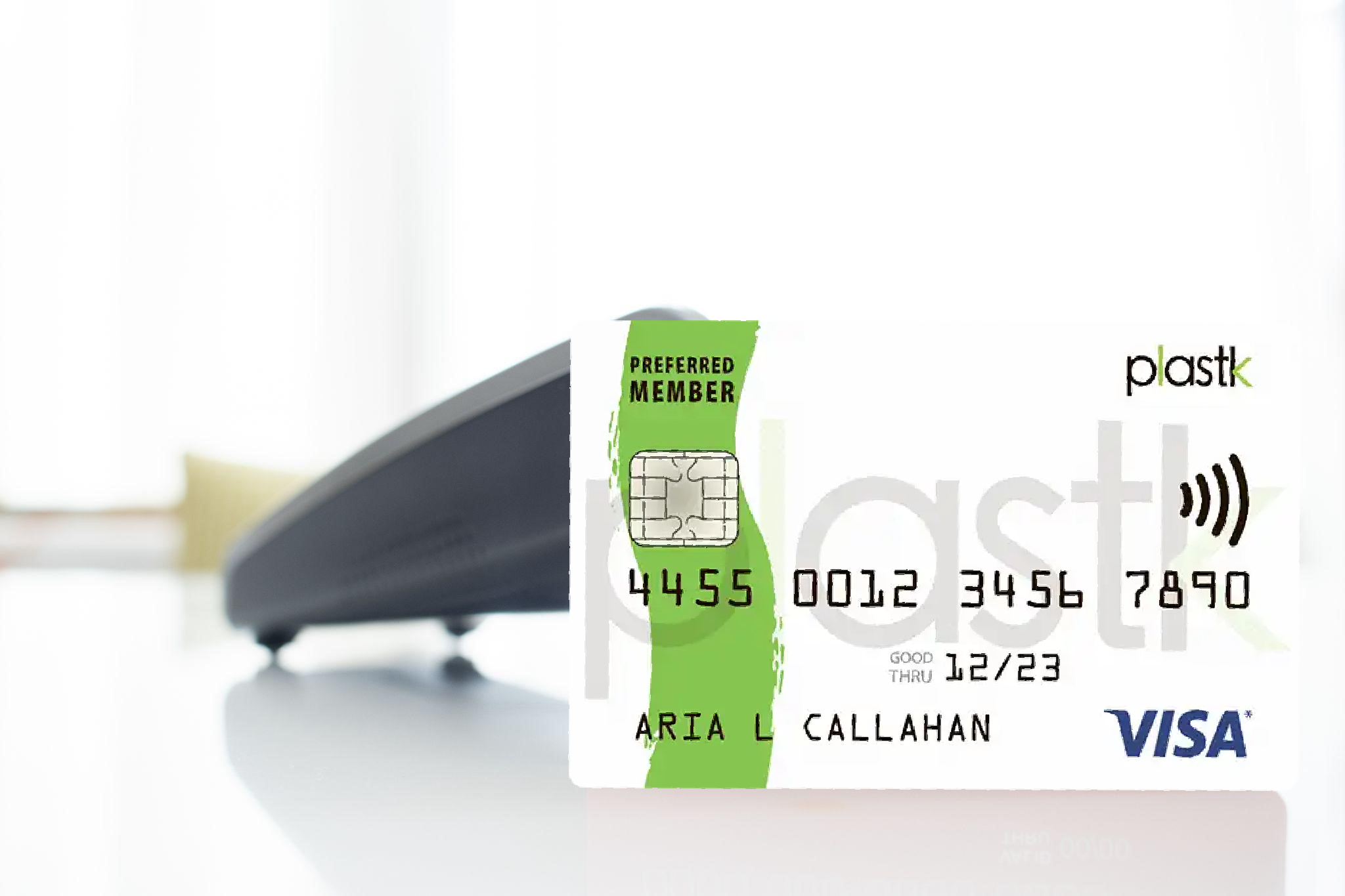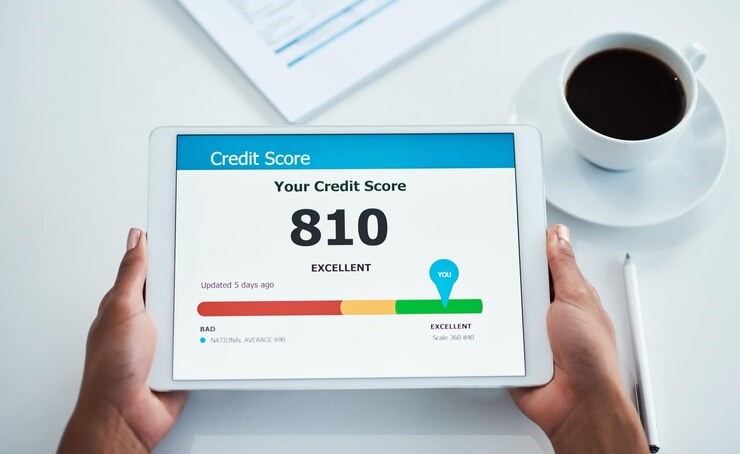Credit Tip Tuesday #97-Beginner's Guide To Credit Score Ranges!

Image Credits: Freepik
Are you new here? Welcome to Plastk’s credit world! :)
We cover one credit topic of your choice every Tuesday to guide you on how to live a better financial life and become financially stable.
So, the discussion for today’s blog is: “Credit Score Ranges.”
Oh, how basic! You must be thinking. Well, we’re focusing on the said topic for the exact purpose. Yes, to enlighten and elaborate the concept right from the start. ;)
Are you ready for a simple yet comprehensive, in-depth, easy-to-understand credit score guide? Yes? Here you go:
What Is Credit Score?

Image Credits: Freepik
The credit score is numerical data that gives you borrowing power.
It decides what interest rate you can get, what card you can apply for, and what loan terms you can get for your mortgage, automobile, and other purposes.
The credit score calculation and data might differ depending on the area of your residence.
The former is used mostly in Canada, while the latter is popular in the US or other countries.
Now the question arises why do you need a good credit score?
From payday loans to job vacancies, from rental apartments to mortgages, and from credit card registration to alternative lending, you need a good score for pretty much everything.
So, what exactly is considered a good score? Or, to be precise, what’s the range that divides it into bad, poor, good, or excellent scores? Let’s read in the next section:
Credit Score Ranges: All You Need To Know!

Image Credits: Freepik
When we say a credit score is a number, the first thing that comes to mind is what number exactly? Because there might be a different scoring method for business scores and consumer scores.
The overall credit score range for business and consumer scores is following:
- 0 - 100
- 300 to 900
As this guide is dedicated to the consumer credit score range, we’ll focus mainly on that. Here’s how the range is categorized:
- Poor Credit Score: 300 - 579
- Fairly Decent Credit Score: 580 - 669
- Good or Average Credit Score: 670 - 739
- Superb Credit Score: 740 - 799
- Excellent or Perfect Credit Score: 800 - 900
So, what’s a good score in general?
If your score falls in the average range, it can be a good score for several things like applying for a credit card, loan, mortgage, etc.
However, the terms won’t be as negotiable and friendly as it was in the superb or excellent category.
Now, the question is how these credit score ranges can impact your life? Let’s find out!
Poor Credit Score

Image Credits: Freepik
As the name suggests, it can make your life literally poor. :(
The reason is that most lenders look at your score to decide the creditworthiness of your profile.
- You can’t apply for an unsecured credit card with your poor score
- Your loan won’t be approved because of it
In fact, you might have to listen to a no or reject due to your poor credit score range.
However, you can still get a secured credit card in Canada, despite your poor or no credit score.
Fairly Decent Score

Image Credits: Freepik
Well, a fair score will get you approved for a good card and loan. There’s no doubt about it. However, here’s what will happen:
- Your application will be eligible with a fair score; however, the credit profile might be ranked low.
- You might also be approved for the loan, but the interest rate and the loan term will be high and fixed.
Still, it’s better than having a poor score as it shows you are capable of clearing your bills and working on your credit.
Good Credit Score

Image Credits: Freepik
Okay, now you are moving towards the lender-friendly credit ranges. :p
Because the better your score is, the more they will love your loan profile.
A good credit score is usually considered the game changer for all your financial matters.
- It can help you negotiate the interest rate on your loans and mortgages; you can ask the service provider to lower the prime rate as your score shows you can repay timely.
- Moreover, it can also help you get bonus points and promotions that are usually offered to high scorers.
Related Article: 9 Questions To Ask Your Lender!
Extremely Good Credit Score

Image Credits: Pexels
Welcome to the VIP zone. :p
When you have a very good and almost perfect score, all the lenders, banks, and brokers love your application.
The reason is they feel the financial risk of your profile is almost nonexistent.
So they don’t have to worry about the borrowed money. In fact, there’s a higher chance an extremely good credit score will be able to negotiate the terms on their standards.
Excellent Credit Score

Image Credits: Freepik
Congratulations, you’ve reached the final stage! :)
The zone of the perfect scorers, the absolute legends, the Canadians with excellent credit score range.
This category is the most blessed category, and it’s totally understandable as they have worked hard to maintain their scores.
They have practiced good money habits, curated an ideal financial budget, and prepared for every monetary emergency that can hurt their credit.
Related Article: Rebuild Your Credit Score With 7 Simple Tips!
What Factors Influence Credit Score & Credit Range?

Image Credits: Freepik
The factors depend on the credit score methodology and agency your credit card provider reports to. Because not every lender reports financial data to credit rating companies, and not every credit agency follows the same calculation process.
However, still, there are some common grounds every credit rating agency covers, and some of them are:
- Credit History
- Outstanding Balance
- Credit Limit
- Credit Utilization
- Credit Mix
- Credit Inquiries
- Payment History
All of these factors can impact your building or rebuilding of credit score and directly affects the credit score range you fall in. In fact, how well you manage your money can also have a great influence on your credit score and credit range.
So, how can you ensure your credit doesn’t suffer? By educating yourself and improving your financial literacy.
Yes, you have to start from the basics.
- You need to know about the soft and hard inquiry.
- You need to understand how credit works.
- You must learn the key to financial planning.
- You have to find loopholes in your budget.
And most importantly, you have to make sure you’re not missing out on anything that can otherwise hurt your credit score.
Because when your credit score is compromised, your credit range is equally affected. You can’t expect to see a drop in your score and yet pray your credit score range remains good or excellent.
Bottom Line
The key beginner tip to credit score ranges is to understand how credit works!
If you know the credit basics, only then can you right the wrongs in your financial approach and improve your credit score to make it fall in a good credit score range.
That’s it from our side, folks!
Hope you liked this blog and find it beneficial for your credit life as a beginner or expert. Lastly, let us know what you want to read next!
We’ll come back with yet another financial topic every Canadian should know about. Happy reading! :)


